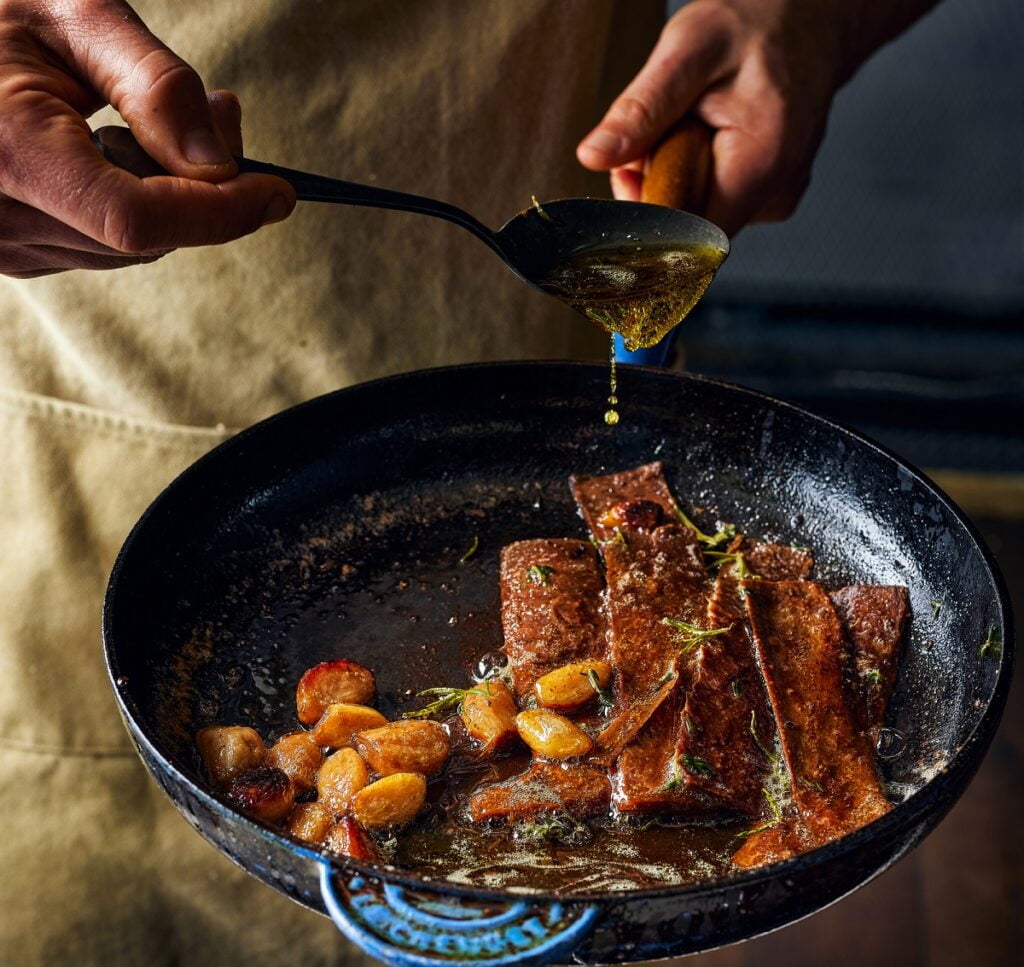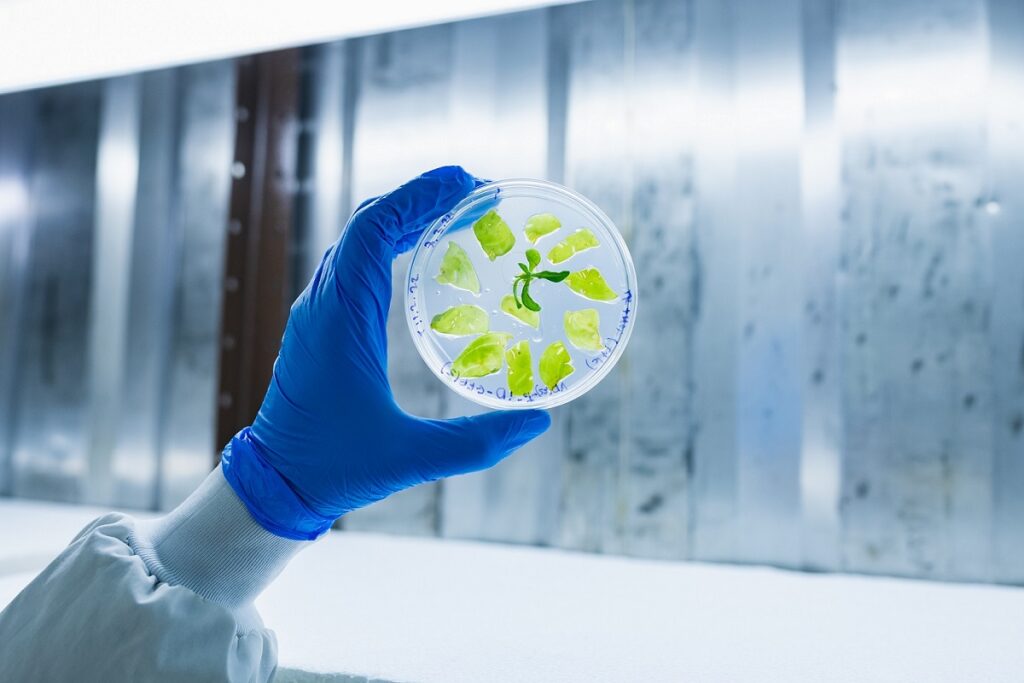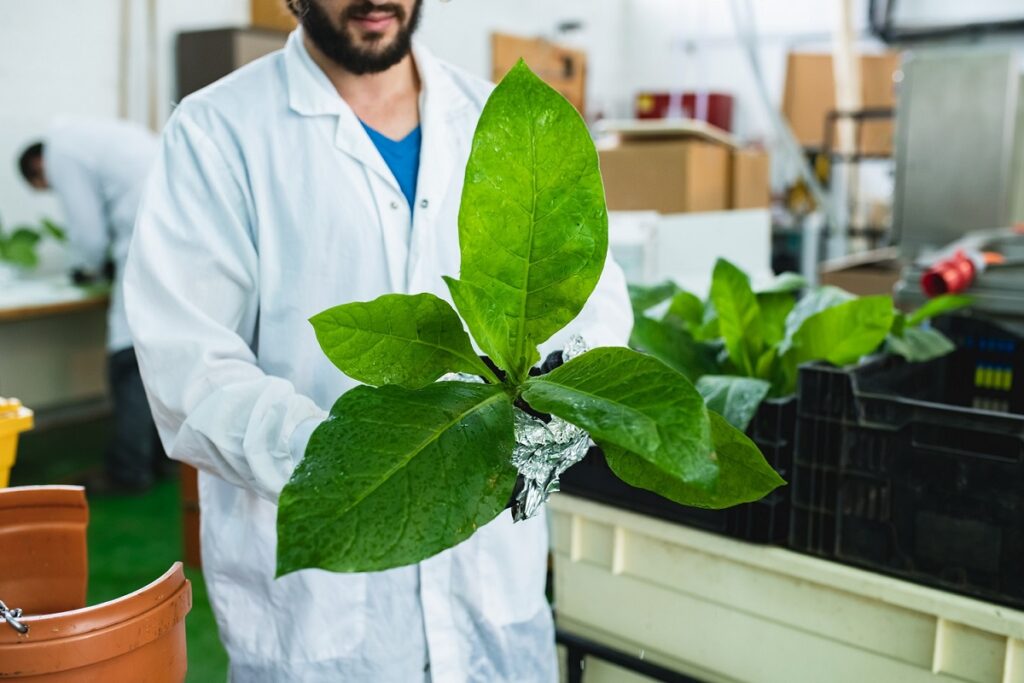Israeli startups in the alternative protein sector raised a sizable $623 million in 2021, a 450 percent increase from $114 in 2020, with $507 million specifically going to cultivated protein and $91 million going to plant-based protein, according to the sustainable food system non-profit A Good Food Institute (GFI) Israel in a report that came out last month.
The cultivated meat industry itself accounted for 36 percent of total investments in the sector last year Names like Future Meat, the company that raised $347 million – the largest funding round ever for a clean meat firm – and Aleph Farms, the lab-grown meat firm that sent its creations to space with Israel’s second-ever astronaut as part of Israel’s Rakia mission, topped the list and have been highly regarded in the field over the years, along with companies like 3D-printed alt-steak firm Redefine Meat, cultivated chicken meat firm SuperMeat, and cultured meat company MeaTech.
Meanwhile, there are a number of other Israeli companies that are eager to answer the demand for alternative meat products. Although they may not be household names like America’s Beyond Meat just yet, they stand out for their unique ingredients and a commitment to making sure their cultured meat products have the realistic, look, feel taste, and smell of real meat, without the use of animals.
NoCamels is highlighting two of those companies below:
More Foods
More Foods is a Tel Aviv-based company dedicated to eliminating the use of animals in the food system by creating “amazing main meal experiences that people can cherish and enjoy,” the company’s founder and CEO Leonardo Marcovitz tells NoCamels. They do this by creating products that “bring a similar experience” that animal ingredients bring to the plate — by using plant proteins.
“If you look at the meat alternative market, most products in the market are using these three main ingredients – soy, seitan, and pea proteins. The soy protein and the seitan are major allergens and have a somewhat negative perception, while the pea protein has a strong off-flavor which needs to be quite processed in order to remove it. Meanwhile, when consumers hear the word meat alternative they assume it’s highly processed,” explains Marcovitz, “So what we did is we took these challenges and we found a solution for them. The way we do that is that we use ingredients that no one else has ever used to create meat alternatives. Those ingredients are pumpkin seed flour in combination with sunflower seed flour.”
The company upcycles pumpkin and sunflower seed side streams from the food oil industry in a process that is not common to the field of alternative proteins.

“Sunflower oil is a large industry. What happens when they press the seeds is that the oil comes out. That’s major commercial value of the product. Then you have this side stream, which is the solid residues of the seeds. So at More Foods, we figure it out and our IP surrounds taking those side streams from there to an actual final product. And that makes us price competitive with pea proteins,” Marcovitz explains.
The number one reason that people shift to alternative meat products is health, he adds. More Foods creates a minimally processed alternative protein that is rich in protein (27 percent) and fiber (7 percent.)
“It has high levels of iron, higher levels of iron than meats. It also has high levels of calcium and potassium. Obviously, it doesn’t have cholesterol, like animal meats. And because we don’t rely on soy, our product contains no major allergens as well,” Marcovitz says.
More Foods was founded by Marcovitz in 2020, who studied biomedical engineering and has already spent a decade not eating animal meat out of ideology and compassion for animals. Six years later, he decided he wanted to use his energy and knowledge to help eliminate the use of animals in the food system.
SEE ALSO: Israel Innovation Authority Grants $18M To Cultivated Meat Consortium
The company has recently closed co-ops with a variety of restaurants and chains based in Israel that have stated pilots serving More Food products. These include Mexicana, a Mexican restaurant, Pita Basta, a Mediterranean restaurant, Butti, a coffee shop, and others.
“We already see that our product can be used in many different applications,” Marcovitz says, “The plan is now to focus on foodservice. Foodservice means restaurants, hotels, coffee shops, bars, etc. That’s the first focus right now. And then in the next six to nine months, we’re also going to start pilots in retail. And then we’re going to expand to Europe — and in Europe, we will also start food service pilots as well.”
Sign up for our free weekly newsletter
SubscribeBioBetter
In recent years, the tobacco plant hasn’t been favored, thanks to its connection with smoking and chewing tobacco. One Israeli-based food tech firm is aiming to change that, thanks to its newest innovation, which shows that the plant has huge potential to become a key component in the future of food.
BioBettter has developed a plant-based protein expression platform to produce complex growth factors for use in cultivated meat. In other words, the Kiryat Shmona-based company is repurposing tobacco plants to create growth factors for the cell development of alternative meat. The company says this groundbreaking achievement is cost-effective and can “significantly reduce the cost” of cultivated meat.

“BioBetter does not manufacture cultivated meat, but growth factors – regulatory proteins and hormones that constitute a vital component in the cell culture media,” Amit Yaari, CEO of BioBetter, tells NoCamels, “Cultivated meat manufacturing requires large quantities of expensive growth factors. Existing (mostly fermentation-based) production technologies and infrastructures are not suitable for providing growth factors in sufficient production volumes and at costs low enough to support commodity-scale production of cultivated meat.”
This genetically modified tobacco plant naturally produces the proteins necessary to create a cell growth channel that companies can use to make products like meat and fat through cell cultures.
“There are multiple advantages to using Nicotiana tabacum (tobacco) as a hardy vector for producing GFs of non-animal origin,” Yaari said in a statement. “It is an abundant crop that has no place in the food-and-feed chain due to its extremely bitter taste and content of undesirable alkaloids.
BioBetter was founded by Prof. Oded Shoseyov, a serial entrepreneur and researcher at The Hebrew University in Jerusalem; Dana Yarden MD, MBA, a biotech business expert; and Avi Tzur, an industrialist, who also was the first investor in the technology.
BioBetter has harnessed those advantages by turning them into bioreactors for expression and large-scale production of proteins. Plant bioreactors use renewable energy and fixate carbon, where inorganic carbon, usually in the form of carbon dioxide, is converted into organic compounds by living organisms. The compounds are used to store energy and as structures for other biomolecules.
“BioBetter turns tobacco plants into bioreactors by instilling within their cells the molecular machinery that produces growth factors (Insulin, Transferrin, FGF2, etc.). The DNA constructs are inserted into the plants genome and are carried and expressed in the plants and their progeny, which can be propagated by seeds. By using tobacco plants grown in open fields as self-sustained, animal-free, renewable energy-driven ‘bioreactors’, combined with a proprietary purification method, our technology enables unparalleled cost efficiency and production scale of complex proteins,” Yaari explains.

The startup says it applies protein extraction and purification technology that enables it to exploit nearly the entire plant while delivering a high purity product.
The company currently sources tobacco plants from local growers but the goal is to eventually source the raw material from tobacco growers globally. Based on cultivation in open fields and BioBetter’s proprietary purification technology, the cost of growth factors production is dramatically reduced, finally bringing cost efficiency to cultured meat production.
“The rapidly evolving Cell-Ag technology aims to replace animal based agri-products (such as meat, dairy, eggs, seafood, leather, and many more), and concomitantly increase efficiency and decrease dependence and exploitation of scarce natural resources,” says Yaari. “It also creates many challenges, one of which is a large demand for ‘food-grade’ growth factors…that will be required at commodity scales and costs. Overcoming this challenge might pave the road for a myriad of technologies and applications that current protein production solutions are simply to expensive for.
The disruptive technology provides virtually unlimited production capacity at ultra-low-cost (<1$/gram), which can support the growth factor requirements of the future food market, he adds.
“We support the cultivated meat companies by providing them the growth factors they need for their production process. We aim at making it possible for them to become economically viable,” Yaari says.
Related posts

Resilient And Nutritious New Plant-Based Milk Aims To Make A Splash

Chocolate From Cultivated Cocoa Comes Without Environmental Toll

Plastic Fantastic: Startup Takes PVC Back To Its Crude Oil Roots




Facebook comments